Are parents spending less time with their kids?
by Esteban Ortiz-Ospina, Senior Researcher and Head of Operations, Our World In Data
In many countries, the amount of time parents spend with their kids has been increasing over the last 50 years. This is true despite large changes in family structure over this time, such as a rise in single-parenting and a large increase in the share of women working outside the home. Looking carefully at the time parents spend with their kids and the forces that shape this time helps us understand an important aspect of family life and childhood development.
In 1999, for example, a report from the Council of Economic Advisors in the US analyzed trends over the second half of the 20th century and concluded: “The increase in hours mothers spend in paid work, combined with the shift toward single-parent families, resulted in families on average experiencing a decrease of 22 hours a week (14 percent) in the parental time available outside of paid work that they could spend with their children.”
The line of thought behind these concerns is that changes to the structure of families and work have meant that children spend less time with their parents because parents – particularly mothers – spend less time at home.
Here we review the evidence and show that this reasoning is flawed. As we explain, in the US and many other rich countries parents spend more time with their kids today than 50 years ago. Equating ‘mother time at home’ with ‘children’s time with parents’ is a huge and unhelpful oversimplification.
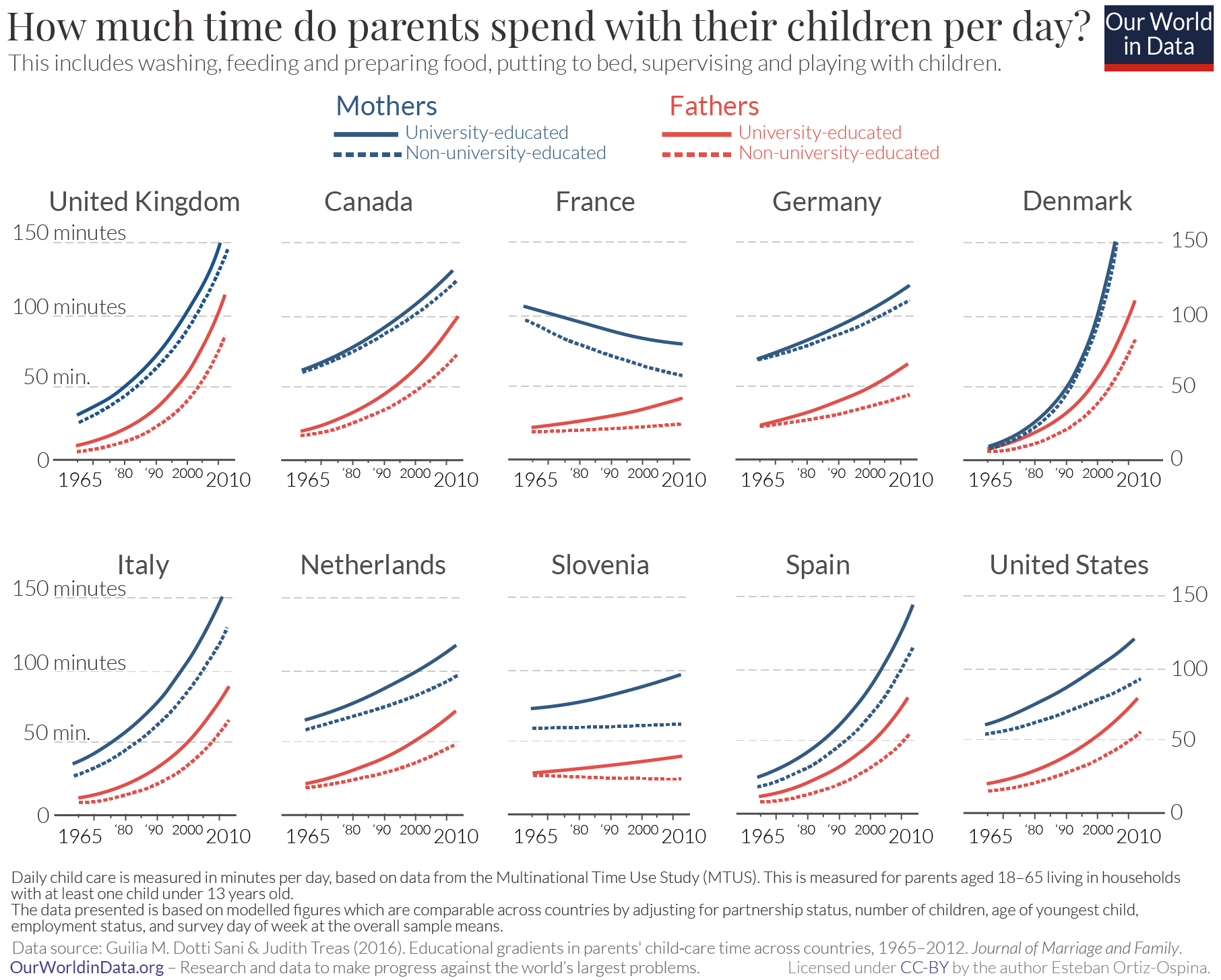
The chart here shows the time that mothers and fathers spend with their children. This is measured using time-use diaries where parents record the amount of time that they spend on various activities, including child care.
These estimates, which are sourced from a paper published in 2016 by sociologists Giulia Dotti Sani and Judith Treas, are disaggregated by education levels and are adjusted to account for demographic differences between countries. We explain below in more detail why these adjustments are important.
As we can see here, there has been a clear increase in the number of time parents spend with their children over the last 50 years. This is true for both fathers and mothers and holds across almost all education groups and countries. The two exceptions are France, where mothers’ time has declined (from a very comparatively high level); and Slovenia where it has remained roughly constant among non-university-educated parents.
In terms of within-country inequalities, we also see two clear patterns. First, in all countries mothers spend more time in child care activities than fathers. The differences are large and persistent across education groups. In some countries, such as Canada, France, and the US, this gender gap has shrunk; while in other countries such as Denmark and Spain, the gap has widened.
Second, in all countries, there is a positive ‘educational gradient’, meaning more educated parents tend to spend more time with their children. In many countries this gradient increased, and nowhere did it decline.
Credits: Main photo by Emma Bauso Photography

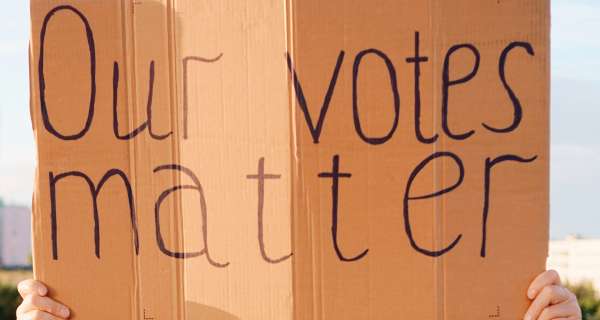

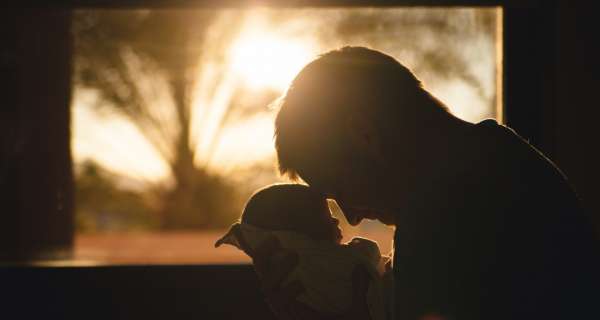



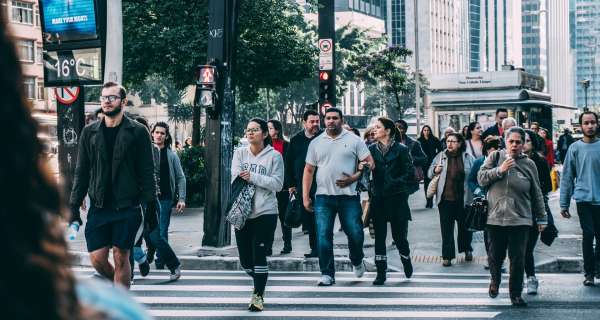









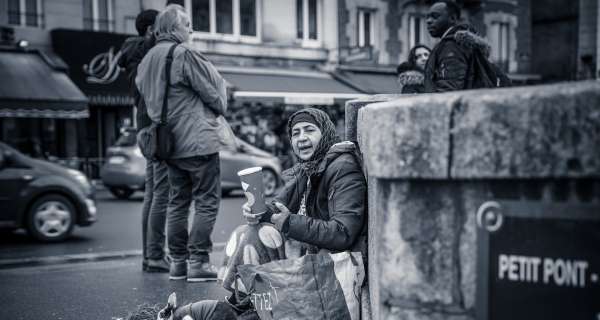







0 Comments